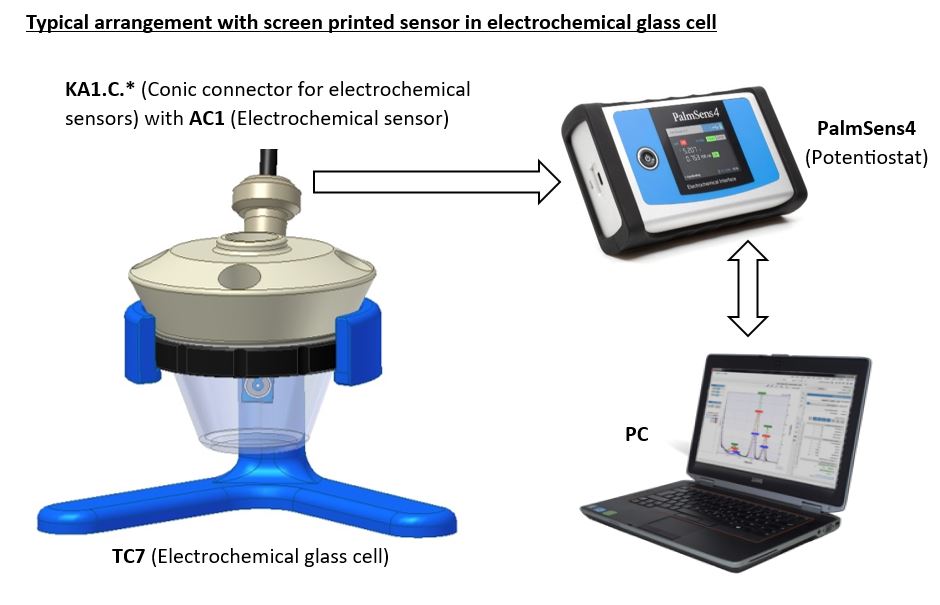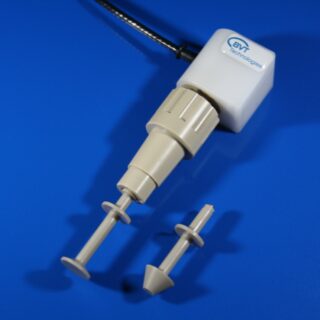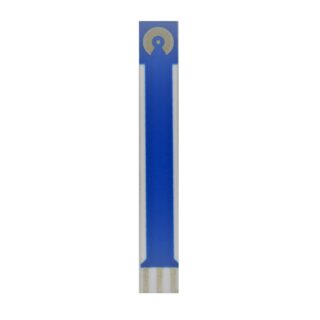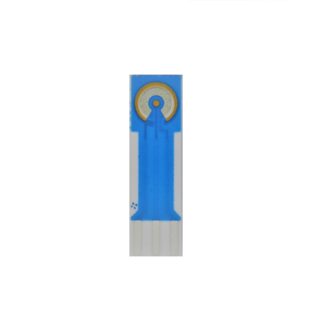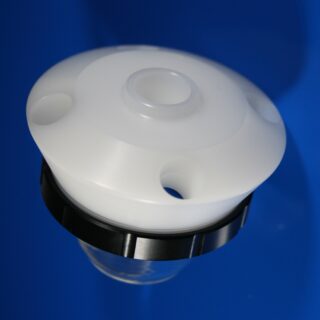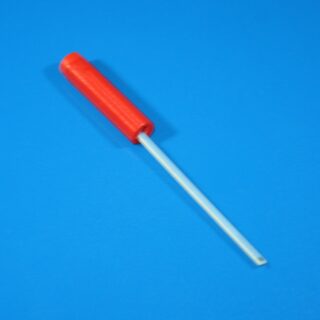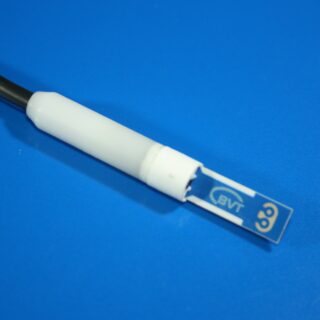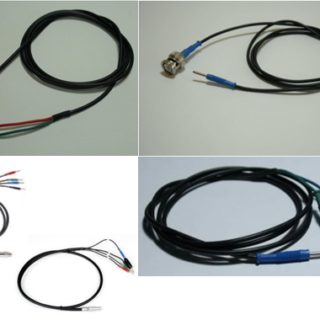Category
- CUSTOMER SERVICES
- NEW PRODUCTS
- Sensors and electrodes
- Custom made and Modified Screen Printed Electrodes
- Stirrers
- Cables and connectors
- Cell
- Potentiostats
- Manual Screen Printer
- Minithermostat
- Pumps
- Accessories
- Kits & Sets
- Discounted SPEs (at a reduced price with visual defects/inconsistancies, but fully functional)
KA1.C.* Conic Connector for Electrochemical Sensors
The connector enables the use of the biosensor based on the substrates AC1, AC4, AC11, AC13, CC1, CC2 and TS1 in classical electrochemical arrangement with stirred vessel. The cell TC4, TC5, TC6 is recommended for use with KA1.C.*.
You may also like…
-
ST1.* Universal Stirrer for screen printed and classical electrodes
View products- The universal stirrer ST1 uses a common micro DC motor
- ST1 allows the solution to be mixed and the particles to be optimally transferred to the surface of the printed or conventional electrodes.
- The construction of stirrer assures the optimum mass transport with the minimum hydrodynamic noise.
- The supply voltage 0 – 5 V and the maximum current of 450 mA mean that it can be used as a USB device.
- The stirrer is manufactured from quality materials and suitable chemical measurements.
- Revolutions range: 120 – 12 000 rpm
-
AC13 Electrochemical sensor
Read moreAmperometric three-electrode longer version of AC1 made by thick film technology
Dimensions: 50.8 x 7.26 x 0.63 mm
WE material: Au/Pt, Au, Pt, Ag, C
The sensor is formed on a corundum ceramic base. On to this surface the working, the reference and the auxiliary electrodes are applied. The working and the auxiliary electrodes are made of variety of materials. At the end of the sensor there is a contacting field which is connected with the active part by the silver conducting paths which are covered by a dielectric protection layer. A bio-chemically active substance can be immobilised on the working electrode of the sensor to create a biosensor.
-
AC1 Electrochemical sensor
Read moreBasic amperometric low cost three-electrode sensor with patented structure made by thick film technology.
Dimensions: 25.4 x 7.26 x 0.63 mm
WE material: Au/Pt, Au, Pt, Ag, C
The sensor is formed on a corundum ceramic base. On to this surface the working, the reference and the auxiliary electrodes are applied. The working and the auxiliary electrodes are made of variety of materials. At the end of the sensor there is a contacting field which is connected with the active part by the silver conducting paths which are covered by a dielectric protection layer.
A bio-chemically active substance can be immobilised on the working electrode of the sensor to create a biosensor. All sensors can be equipped with heating and temperature sensing elements. Thermistor (must be calibrated) or Pt 1000 (the response corresponds to the ISO standard) is used as the temperature sensor.
We also offer:
- working electrode made of polished gold (WE diameter 1 or 2 mm) – sensor type: AC1P.W*.R*, with homogenous surface with roughness less than 1 µm
- working electrode made of a material of guaranteed purity of up to 99.99 % (WE diameter 2 mm) – sensor type: AC1.GP
We also offer activated graphite sensors on customer request.
See activation example below:
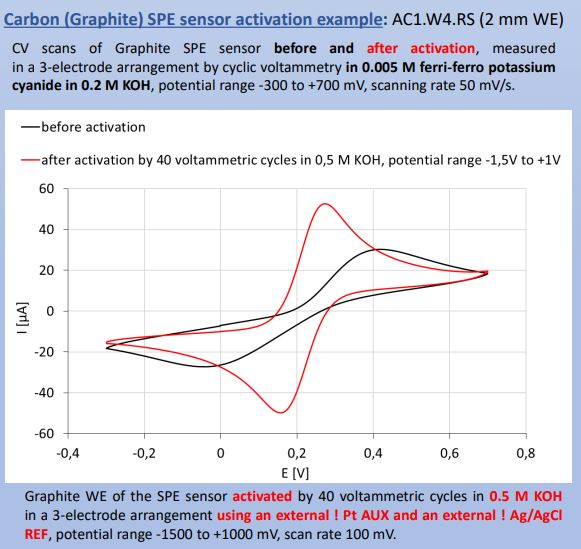
* Have a look at product cathegory Discounted SPEs – which include offer of Screen Printed Electrodes (SPEs) at a reduced Price from our AC1 line of Sensors. They are fully functional, but with visual defects or inconsistancies.
– ideal for use by students to gain handling experience and knowledge on SPEs and their uses
– ideal for initial experiments in research -
TC6 Electrochemical Glass Cell
Read moreBorosilicate glass cell serves for electrochemical measurements.
The analyzed solution can be thermostated by minithermostat MT1-1.
Cell openings are designed for electrochemical sensors connector KA1.C, classical electrodes WCEc, ACEc, RCEc and stirrer ST1, ST3 separately.
The device enables the measurement with inserted samples.


